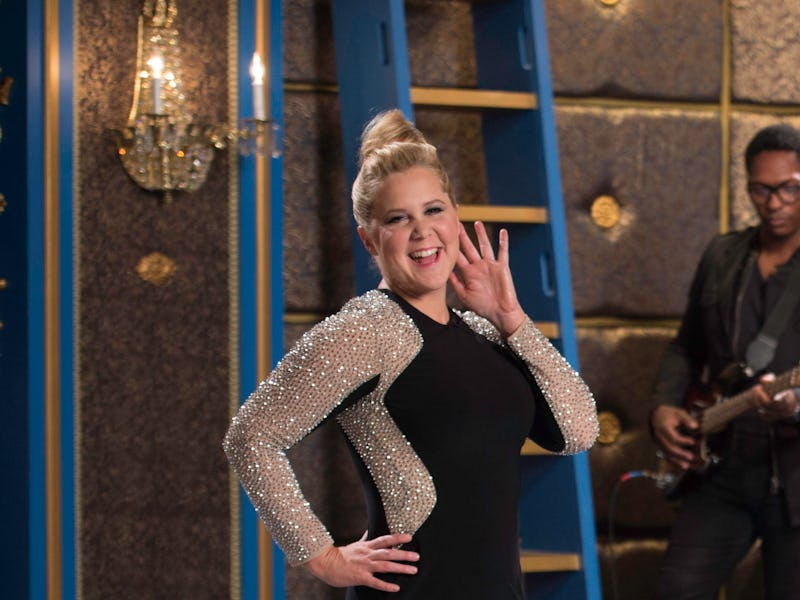'Inside Amy Schumer' Shines a Light on the Nature of Celebrity In "Fame"
Our celebrity-obsessed culture has a habit of consuming and dehumanizing people, and "Fame" gives us an opportunity for self-examination.

A constant topic of conversation surrounding Inside Amy Schumer’s fourth season has been how Amy Schumer’s fame might impact the show. So far, Inside’s done quite a bit of leaning into Schumer’s success and into the media attention that’s been heaped on her. But last night’s episode, “Fame,” addressed Schumer’s status head-on.
The opening sketch finds Schumer in a coffee shop, increasingly accosted by people who want things from her: photos, $100, a joke, a piece of her (literally). The barista misidentifies her as “Fat Amy from that singing movie” and everyone in the shop closes in with demands until, eventually, her head ends up on a stake and the whole thing culminates in a headline that asks “Has Stardom Gone To Amy Schumer’s Head?”
The following sketch finds us on a luxury airship called Down to Earth (“that never touches the ground for tax reasons”) where we find Schumer hosting an in-air show with Selena Gomez’s house zeppelin band called Selena and the Schume-Tones. Surrounded by opulent furnishings, Schumer proves that she’s just like the rest of us: she gets coffee with her miniature dinosaur, uses her sister as a personal assistant/human parachute, and has no idea how airships work.
The message is clear: we keep saying that Schumer has changed, but what is it we think she’s changed into? An airship-dwelling maniac with a Jurassic Park pet? Moreover, it points out the very bizarre and damaging way that we regard celebrity. We talk ad nauseam about what Schumer’s every move, every controversy means for us. The media machine and the celebrity-loving public consumes human beings for clicks and for the purposes of fleeting conversation.
“Fame” gives us two sides of the same coin: it shows the flawed pictures we paint in the way we talk about celebrities and the alarming ways in which people interact with recognizable people who they seem to feel owe them something for their fandom.
Being recognizable is a burden, particularly for women. When we elevate people, making them new items at every turn, we turn them into something “other.” Just weeks after a man took a photo of Schumer without her permission, we get this damning commentary. The people in the coffee shop in the opening sketch didn’t treat Schumer like a human, they treated her like a cardboard standup with a voice box.
Sure, the sketch uses hyperbole to make a point, but if you’ve ever heard someone talk to an author, actor, or musician in a public setting, you know that the way people interact with anyone they consider to be a celebrity or public figure can be deeply dehumanizing. We can’t begin to understand the exhaustion that comes with being asked for something by strangers all the damn time.
We’ll probably keep talking about how Inside Amy Schumer is different this season, but the way in which the show is leaning into Schumer’s increasing status continues to do what Inside is best at: using sketches that are razor-sharp to force us to examine ourselves and the world around us.